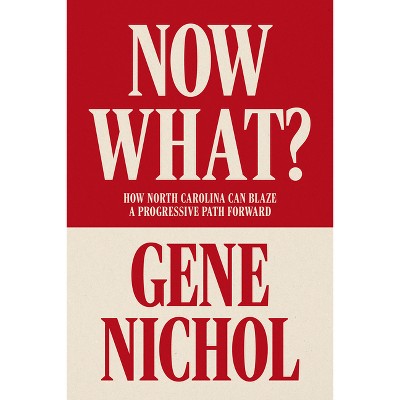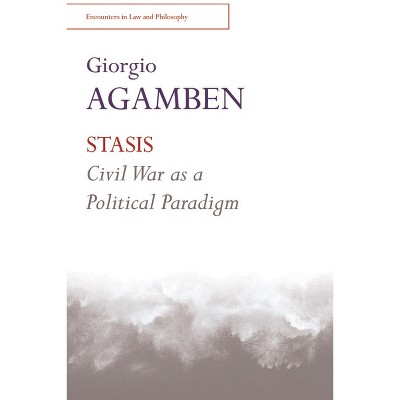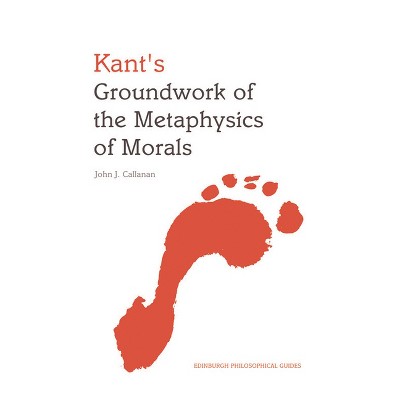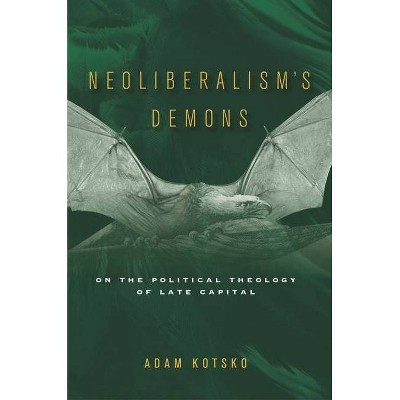Sponsored

Agamben's Philosophical Trajectory - by Adam Kotsko (Paperback)
In Stock
Sponsored
About this item
Highlights
- Giorgio Agamben has emerged as one of the most perceptive and even prophetic political thinkers of his era.
- About the Author: Adam Kotsko teaches in the Shimer Great Books School at North Central College, Chicago.
- 240 Pages
- Philosophy, Political
Description
About the Book
The book shows how Agamben's political concerns emerged and evolved as Agamben responded to contemporary events and new intellectual influences while striving to remain true to his deepest intuitions. Kotsko reveals the trajectory of Agamben's work and shows us what it means to practice philosophy as a living, responsive discipline.
Book Synopsis
Giorgio Agamben has emerged as one of the most perceptive and even prophetic political thinkers of his era. Now that he has completed his career-defining work - the multivolume Homo Sacer series - Adam Kotsko, one of his leading translators, shows how his political concerns emerged and evolved as Agamben responded to contemporary events and new intellectual influences while striving to remain true to his deepest intuitions.
Kotsko reveals the trajectory of Agamben's work and shows us what it means to practice philosophy as a living, responsive discipline.
From the Back Cover
How Agamben's thought evolved in response to contemporary political and intellectual events Giorgio Agamben has emerged as one of the most perceptive and even prophetic political thinkers of his era. Now that he has completed his career-defining work - the multivolume Homo Sacer series - Adam Kotsko, one of his leading translators, shows how his political concerns emerged and evolved as Agamben responded to contemporary events and new intellectual influences while striving to remain true to his deepest intuitions. Kotsko reveals the trajectory of Agamben's work and shows us what it means to practice philosophy as a living, responsive discipline. Key Features - Focuses on Agamben's intellectual development - Offers the first study of the complete Homo Sacer series - Takes into account Agamben's recently-published memoir - Addresses the full range of Agamben's thought on linguistics, poetics, politics and theology. Adam Kotsko teaches in the Shimer Great Books School at North Central College, Chicago.Review Quotes
Adam Kotsko's brilliant study provides a chronological and systematic reading of Giorgio Agamben's writings that allows us to see the evolution of Agamben's thought over the years, as it responds to the varied historical contexts and philosophical problems uniquely characteristic of his oeuvre. As Kotsko is particularly attuned to the turn from the poetic to the political, he demonstrates subtle nuances often otherwise missed within Agamben's work, making Agamben's Philosophical Trajectory a fascinating portrait of the many twists and turns, continuities and discontinuities alike, within his philosophy. This book will most certainly serve as a definitive account of Agamben's development for years to come.--Colby Dickinson, Loyola University Chicago
Adam Kotsko's new book, Agamben's Philosophical Trajectory, does a masterful job of weaving together a narrative of Agamben's work as a whole while consciously avoiding the trap of treating Agamben's 60-year career as possessing an impossible consistency. While this book was not written as an introduction to Agamben, its comprehensive and chronological coverage of his oeuvre means that it can serve as a fantastic starting point for those new to the often extremely challenging thinker. At the same time, it can work as a means for those who are familiar with some of Agamben's writings to get a grasp on his wider project. Even those well-versed in Agamben's political theory, for instance, will benefit from Kotsko's discussion of Agamben's earlier writings.--Paul Gorby, University of St Andrews "Marx & Philosophy Review of Books"
About the Author
Adam Kotsko teaches in the Shimer Great Books School at North Central College, Chicago. He is the author of The Prince of This World: The Life and Legacy of the Devil (Stanford University Press, 2016), Creepiness (Zero Books, 2015), Why We Love Sociopaths: A Guide to Late Capitalist Television (Zero Books, 2012), Awkwardness: An Essay (Zero Books, 2010), Politics of Redemption: The Social Logic of Salvation (Continuum, 2010), Zizek and Theology (Continuum, 2008). He is co-author of Agamben's Coming Philosophy: Finding a New Use for Theology (Rowman & Littlefield, 2015).
Shipping details
Return details
Frequently bought together

Trending Philosophy
















